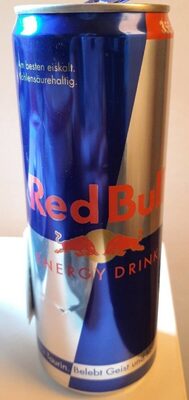
Barcode: 9002490206840
Red Bull
HALAL
📝 Reason: The analysis of Red Bull’s ingredients reveals no Haram (forbidden) substances according to Islamic dietary laws. All ingredients are either plant-derived, chemically synthesized without the use of Haram substances, or synthetically produced vitamins and minerals. The absence of alcohol, pork derivatives, and non-Halal meat products in the ingredients list confirms its Halal status. Islamic dietary laws, as outlined in the Quran (e.g., Quran 5:3), prohibit the consumption of certain substances, none of which are present in this product. Therefore, Red Bull can be considered Halal based on its ingredient composition.
📄 Certificates: None
Ingredients:
Details
Understanding the Halal Status of Red Bull
Red Bull is a widely recognized energy drink, famed for its unique formulation that boosts energy and alertness. This post delves into whether Red Bull is Halal, helping consumers view its status through an Islamic dietary lens.
Halal Status Explained
According to rigorous analysis, Red Bull’s ingredients list contains no Haram substances as outlined by Islamic dietary laws. The absence of alcohol, pork derivatives, and non-Halal meat confirms that Red Bull is Halal, making it suitable for Muslim consumers.
Ingredient Breakdown
The ingredients of Red Bull comprise a selection of substances aimed at providing energy, hydration, and certain vitamins. Let’s break down each ingredient:
- Wasser (Water): Universally Halal, serving as the primary base of the drink.
- Saccharose (Sucrose): Plant-derived and Halal, saccharose is commonly used as a sweetener.
- Glucose: Another sugar, glucose is also plant-derived and Halal.
- Citronensäure (Citric Acid) – E330: Derived from plants, it is Halal and commonly utilized in food and beverages for its tart flavor and preservative qualities.
- Kohlensäure (Carbon Dioxide): This is chemically synthesized and Halal, providing the drink’s carbonation.
- Taurin: Synthetically produced in Red Bull, taurine is not derived from animals, classifying it as Halal.
- Natriumcarbonat (Sodium Carbonate) – E500: A chemically synthesized compound, Halal in nature.
- Magnesiumcarbonat (Magnesium Carbonate) – E504: This Halal ingredient is chemically synthesized and contributes to energy production.
- Koffein (Caffeine): A naturally occurring stimulant, caffeine is plant-derived and Halal.
- Niacin (Vitamin B3): Synthetically produced and Halal, niacin is vital for energy metabolism.
- Pantothensäure (Vitamin B5): Another synthetic vitamin, classified as Halal.
- B6 (Vitamin B6): This sensitive nutritional component is synthetically produced and Halal.
- B12 (Vitamin B12): Like other vitamins listed, B12 is synthetically produced and Halal.
- Aromen (Flavors): These flavors are chemically synthesized and Halal.
- Zuckerkulör (Caramel Color) – E150a: Derived from plants, it is Halal and gives the drink its characteristic color.
- Riboflavin (Vitamin B2) – E101: Synthetically produced and Halal, important for cellular function.
Conclusion
In summary, the detailed analysis and ingredient breakdown confirm that Red Bull can be categorized as Halal. Every component is either plant-derived, chemically synthesized, or synthetically produced without any involvement from Haram substances. Thus, individuals seeking an energy boost can consume Red Bull without concern for their dietary laws, knowing they are adhering to Halal guidelines.
By choosing Red Bull, consumers can enjoy an effective energy drink without compromising their religious beliefs or dietary restrictions.

